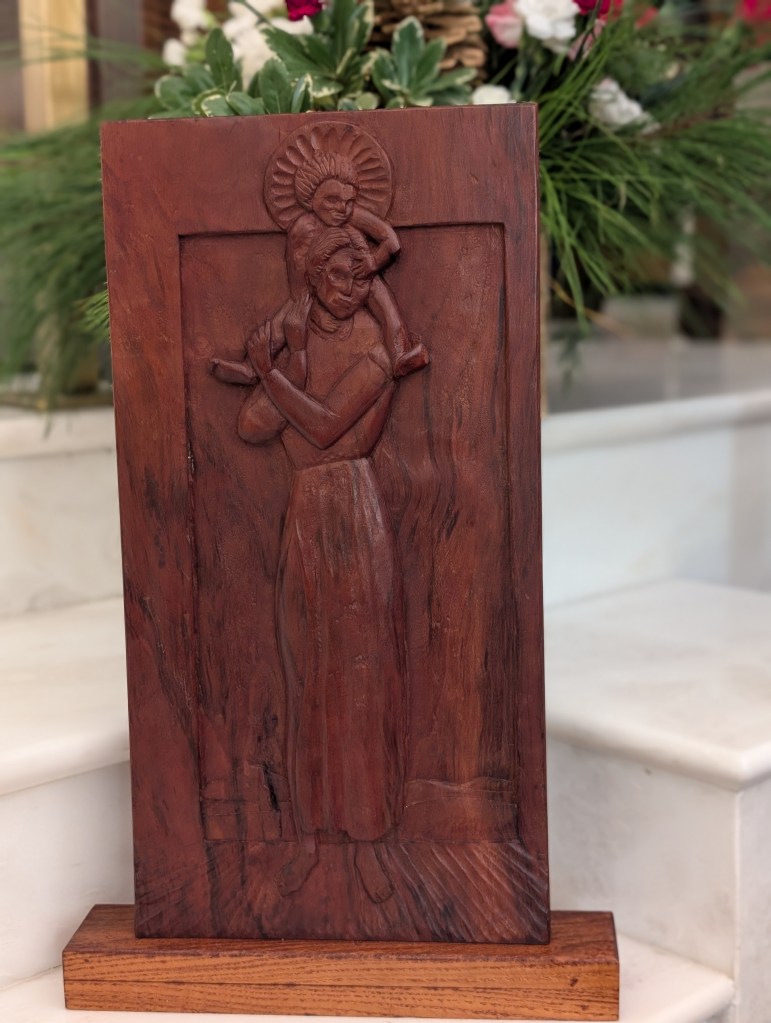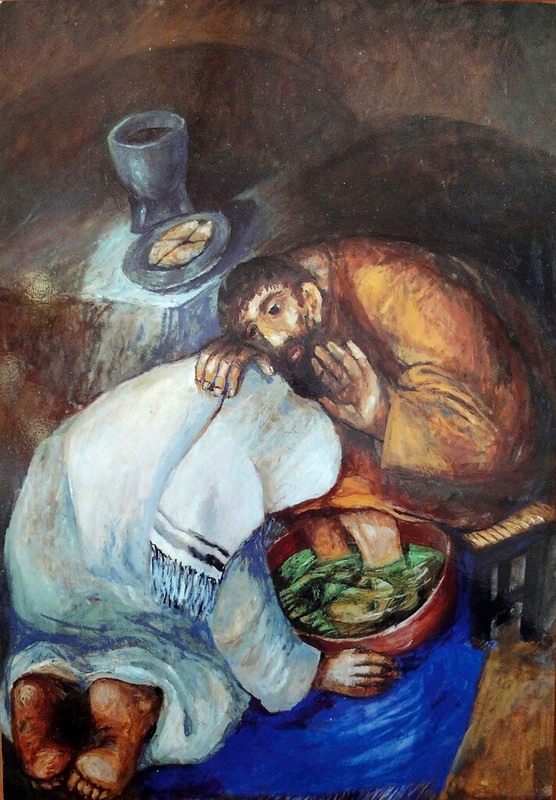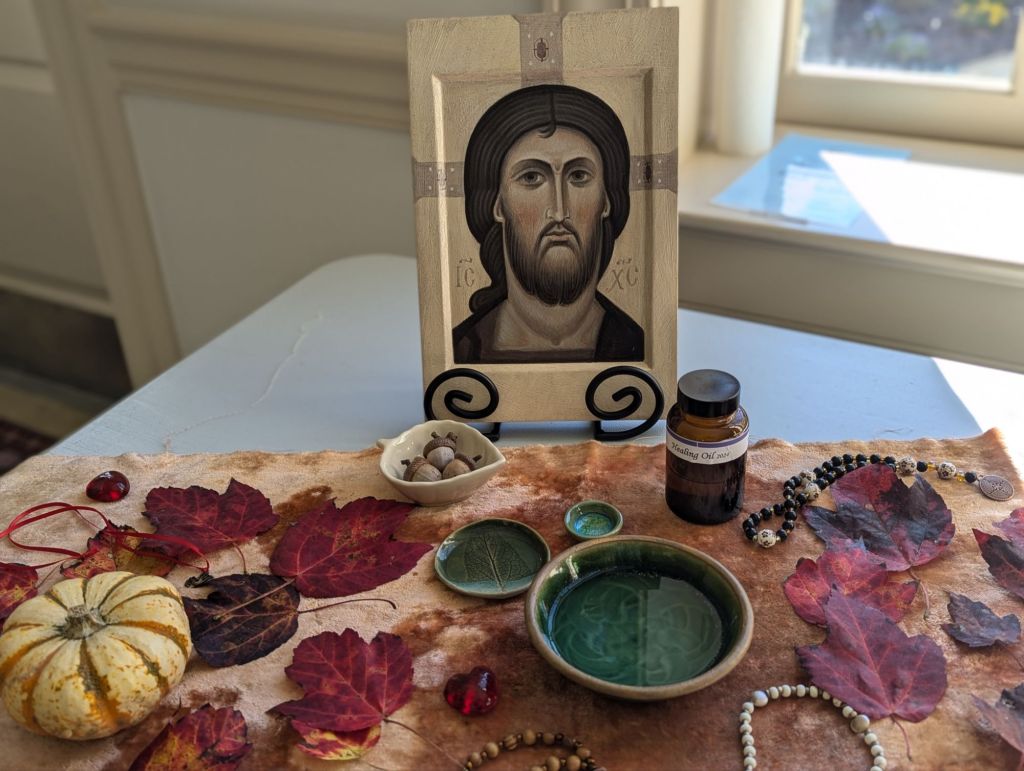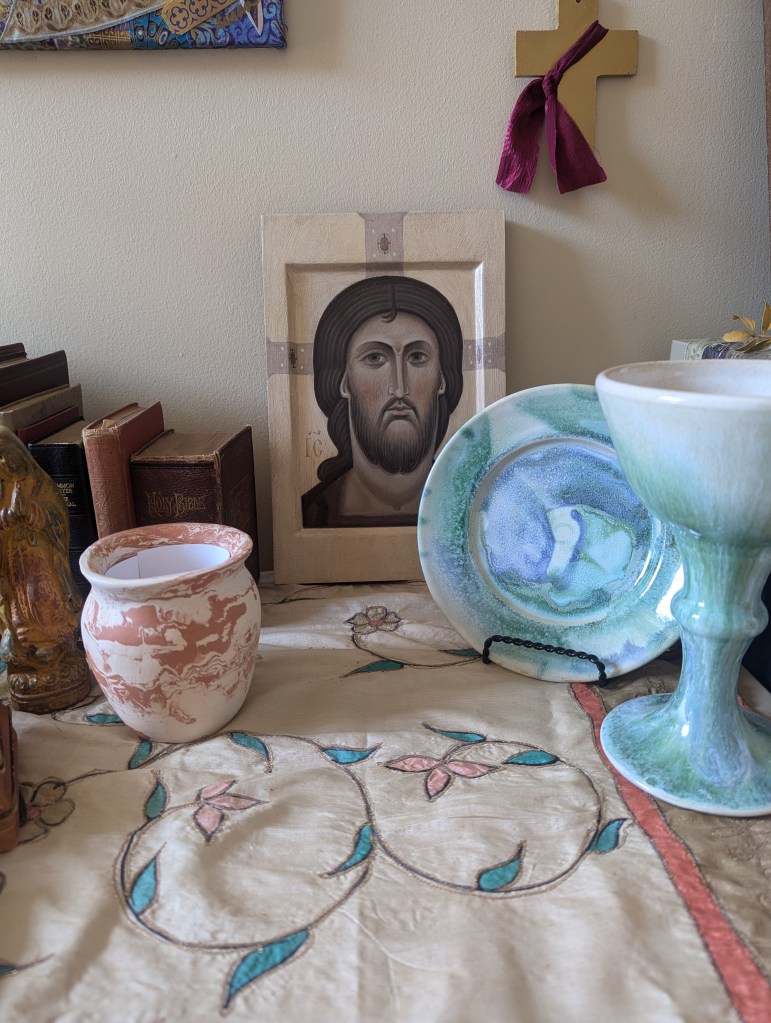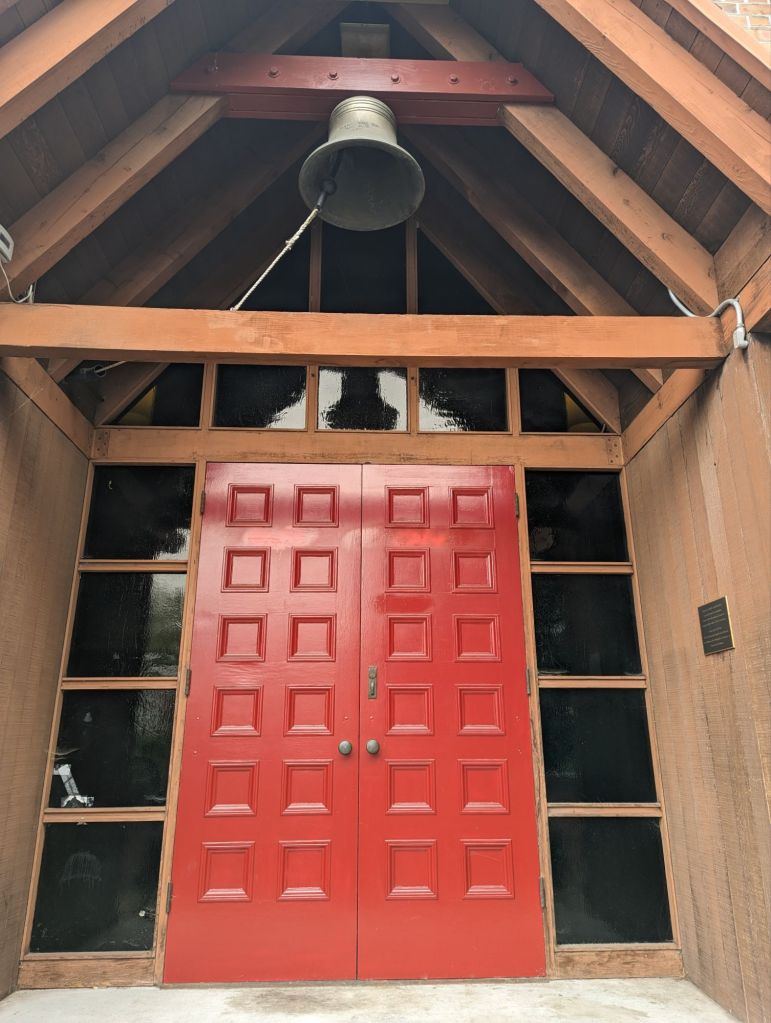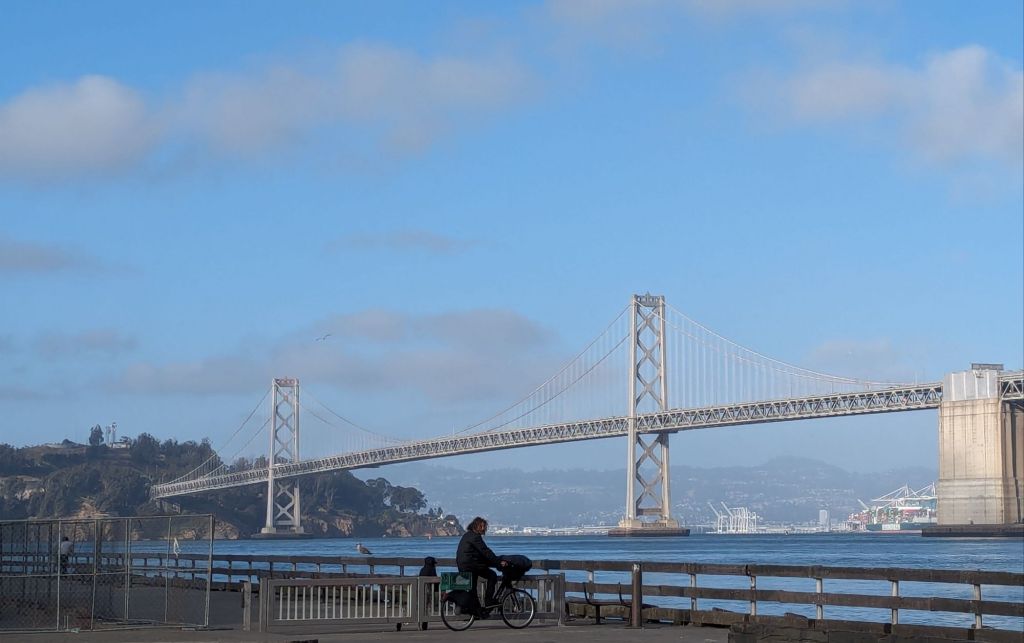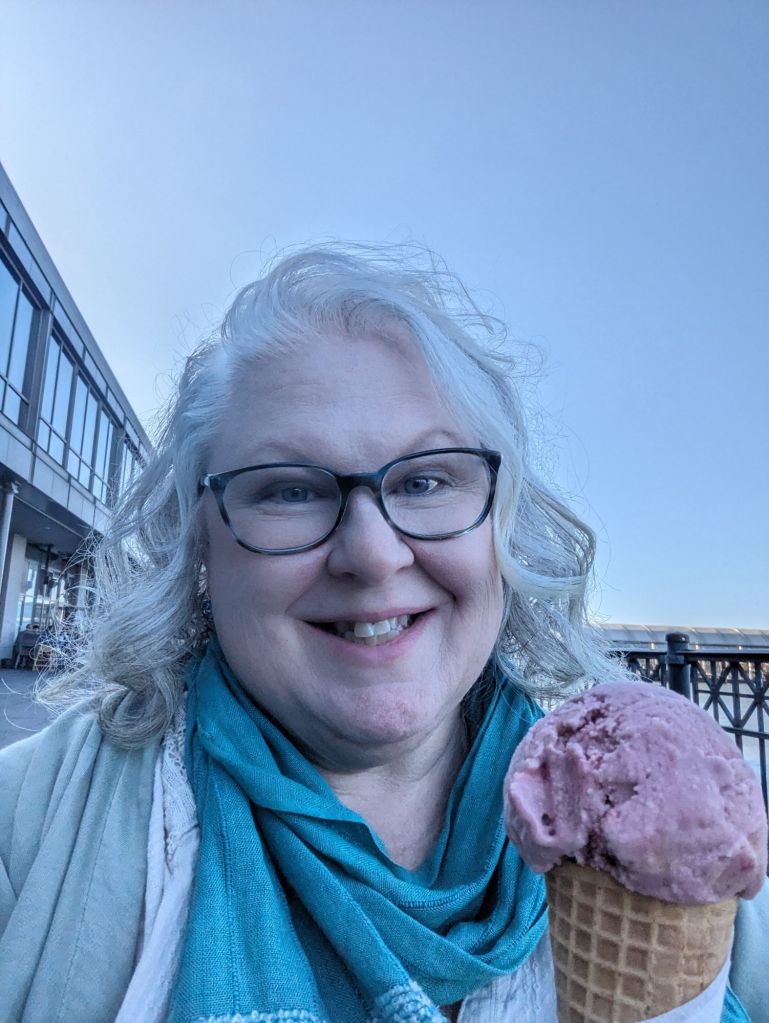Homily for the Second Sunday of Christmas
January 4, 2025
St. Mark’s Episcopal Church
Several weeks before Christmas, my daughter Cass and I were doing some shopping at Diversity Thrift, since we love to look for our own personal treasure in other people’s cast-aways. She had noticed a carved, wooden icon on the back of a shelf, hidden behind trinkets filling the shelf in front of it. “Mom, I really think this one is meant for you” she said. As soon as I saw it, I was immediately drawn to the image of Mary and the Christ Child carved onto it, but much to her disappointment, I didn’t buy it. I tried to put it out of my mind as I focused on the practical things: where would I put it, do I really need it…admittedly an ever important question as one increases in age and accumulation of things.
But even after we went home, I kept thinking about it.
We ended up going back again just a few days before Christmas, on a different thrifting quest this time. But before we could do any other shopping she said, “wait: we have to see if your icon is still here.” Apparently she hadn’t stopped thinking about it either. Sure enough, there it was: still on the shelf, as if waiting for our return. Cass was quick to point it out: “See Mom, it’s still here. I really think this is meant for you.”
I didn’t hesitate this time; it felt like a gift now. So, I bought it and brought it home.
This latest icon that has found me is a carved wooden depiction of Mary and Jesus…but not the cradled newborn image to which we have become accustomed. This one is Mary with toddler Jesus hoisted up on her shoulder, His hands holding onto her head with one chubby hand partially covering her eye. It is joyful, human and holy.
It’s so interesting how one image can help us consider the same stories in new ways. During these twelve days of Christmas, I’ve been focused on this image, easily imagining Jesus not only as a fragile baby but also growing up, learning how to walk and talk with all the wonder, joy and playfulness that comes with early childhood. I imagine Mary and Joseph’s care and protection, but I also envision them playing peek-a-boo and cherishing the moments that add joy to our human relationships: those simple, loving actions that make us so beautifully, wonderfully human.
And this Sunday, we hear the story of the Star of Wonder shining its light for the sages and mages who came to reveal that this child was born not only as messiah for the Jewish people, but as a savior for the whole world. What a wonder that is for us to ponder.
And what wonder Jesus, Mary and Joseph must have had upon seeing camels and elegantly dressed visitors and their entourage kneeling down to present gifts; how amazing creation must have seemed through the eyes of a developing child. Anyone who has been a parent, grandparent, godparent or parent-figure to a young child knows that every day is an encounter with wonder, whether it is noticing one’s own toes or taking delight in seeing flowers, birds, clouds and trees. Wonder is the foundation of human experience.
That wonder also helps us bravely enter into more challenging parts of the Christmas story. The Gospel text we read today begins the story with the wise men seeking to learn about the whereabouts of the child whose star they had followed, from the ruler of the country where that star had led them. But King Herod of Judea was less than happy to hear about a King of the Jews, a people who were under Roman occupation. Just imagining the little child of Bethlehem struck fear in Herod’s heart; this baby king was a danger to his own power and authority. So, he sought information about the child for his own ill-intended purposes, and then he tried to get the visitors on his side before sending them off to pay homage to the child they had travelled to see.
After arriving in Bethlehem and delivering their holy and symbolic gifts to the tiny, heaven-sent King and Savior, the wise Magi also had the wisdom and insight not to participate in Herod’s vindictive plan. They listened to the messengers who spoke through their prophetic dreams and they went home by another road.
Sadly, the story doesn’t end there.
Tyrant kings enact the kind of carnage the tyrant kings do to preserve their power, and we know from history that Herod not only tried to convince the Magi from the East to reveal the whereabouts of the newborn child, but then tried to eliminate all the perceived threat to his oppressive power by ordering the deaths of all the young children in the surrounding area, those whom we call the Holy Innocents of Bethlehem. These youngest and earliest martyrs are also commemorated during the 12 days of Christmas, their memories also shining like the holy light of the stars. Their story is wrapped in the unfolding story of God’s incarnate love that was breaking into a world that was filled with violence, corrupted power, fear, war, and oppression.
That love grew and flourished with all the wonder of a child.
Through prophetic dreams and warnings from God’s messengers, Joseph and Mary fled the danger of Bethlehem with the infant Jesus, traveling first for asylum to Egypt until Herod’s death and then returning briefly to Galilee. Eventually, this migrant family quietly returned and made their home and livelihood in Nazareth.
There is so much we aren’t told in our holy scriptures about Jesus’ life following that time of wandering and exile. What we do know is that Jesus, fully human and fully divine, lived and grew in the midst of a family who worked, loved, and cared for him.
With the inspiration of Mary and toddler Jesus this Christmas, I have also felt free to wonder into these questions and stories and notice so many parallels about where and with whom the presence of Christ surely is being made know in our own world today.
One thing that I have noticed about this icon is that Mary is not depicted with a halo around her head. Instead, the same carving technique the artist uses for Jesus’ halo appears all around Mary’s feet, as if the ground on which she walks is made of light.
I imagine it must have felt like that to her: giving birth in a stable, shepherds and angels glorifying God, a visit from wise and mysterious travelers from the East, vivid dreams and shining stars illuminating the path for their family through those perilous days, weeks, months, years in exile. All these things she treasured and pondered in her heart, perhaps even while toddler Jesus was riding piggy-back and laughing on her shoulders. The light at her feet extended step, by step, by step to guide her path.
This image of walking with holy light at our feet offers a message of hope to us in these extended days of Christmastide as we move closer toward the Epiphany light. In taking on this life of faith as followers of Christ, we also carry the Christ-child with us, both proclaiming the light of Christ to the world and discovering our way with each step, guided by the holy light of God’s presence. It doesn’t mean that the destination is always clear to us. It doesn’t mean that the road won’t be perilous at times. But we are invited to walk in the holiness of that Christ light, step by step through this journey of life.
Walking in the faithfulness of God’s presence is what makes the journey holy.
There are so many holy journeys taking place in the world around us: journeys made by those in exile, fleeing oppression; by those who are seeking to draw near to a Savior; by those who bring healing and hope to the victims of war and disaster; by those stepping boldly in peace and love that counter the fear and power-brokering of those in authority who abuse the power entrusted to them. Looking up at the stars can be beautiful, holy and wise. But it is also worth taking a look at the holy light shining at our feet, illuminating the next few steps, guiding us and at times prompting us to go home by another road that doesn’t play into the schemes of Empire.
Where is the Christ light guiding your feet this season?
What messages and messengers are finding you?
Perhaps it doesn’t need to be a dazzling star. Perhaps we are called to notice the quiet and holy light present with us, abiding with us, guiding our steps and illuminating the journey: step by step by step.
